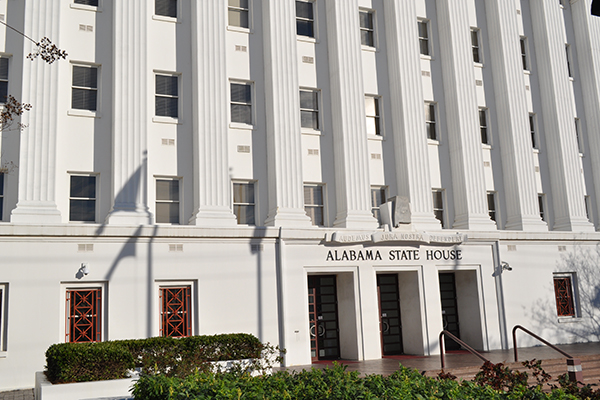Votes in three different Alabama counties Nov. 4 affected the status of bingo gambling and Sunday alcohol sales in those parts of the state.
Greene and Macon counties voted to legalize bingo, while most of Baldwin County voted to legalize Sunday liquor sales.
“It’s a sign of the inroads the gaming and alcohol people are trying to make in Alabama,” said Alabama Citizens Action Program executive director Dan Ireland.
“They want to break down all barriers to spreading gambling and liquor sales everywhere,” he said. “When that happens you’ll end up saturating the state with casino gambling.
“This is going to be a major thrust in 2004, because it will be presented as an easy way to raise money for the state. That will be their song and dance,” Ireland said.
He strongly urged Alabama Baptists to be aware of the tactics of gambling proponents and stand strong against these attempts.
Parts of the constitutional amendments allowing the recent bingo votes were identically stated on the ballots of both counties: “authorizing the operation and bingo games by nonprofit organizations for charitable, educational and other lawful purposes,” according to the Associated Press.
But despite the same wording on the ballot both bills in their entirety were not identical, Ireland said.
He said he and Rep. Arthur Payne, a member of First Baptist Church, Trussville, worked to limit the reach of the Macon County bingo bill, making it more like the Greene County bingo bill. The Greene County bill requires the nonprofit organization itself to operate the bingo games, keeping them from leasing it to dog tracks to operate. The Greene County bill also limits the winnings from bingo to $10,000, Ireland said.
The Macon County bill allows dog tracks to operate bingo for charities but is not required to have nonprofit organizations operate the games. Macon County also has unlimited winnings with its bingo games.
Don Johnson, director of missions for Tuskegee Lee Association, which includes Macon County, said all of the seven Southern Baptist churches there opposed legalizing bingo.
“But countywide there was not much opposition to legalizing bingo,” he added. The vote came rather suddenly, so there was not enough time to launch a widespread organized effort to oppose it, he explained.
“The churches opposed it, but all are small — about half are bivocational — so they didn’t have a lot of votes or resources to fight it,” Johnson said.
Currently fighting the bingo vote results are Eutaw (Greene County) mayor Raymond Steele and Greene County Commission Chairman Chip Beeker. Steele and Beeker have issued a challenge to the bingo vote there, saying it was not properly advertised and absentee voters were given too few days in which to submit their ballots.
In Baldwin County a majority of voters in their Nov. 4 referendum approved of selling beer and wine on Sundays in most of Baldwin County.
Of the seven commission districts in the county, district two was the only one to vote against Sunday liquor sales.
This district is in northeastern Baldwin County and includes the communities of Little River, Blacksher, Latham, Stockton, Redtown, Lottie, Rabun, Perdido, Carpenter, Cottage Hill, Pine Grove, Whitehouse Forks, Crossroads, Dyas, Phillipsville, Vangordon, Stapleton, Steelwood and Gateswood.
The district two town of Bay Minette, however, approved the amendment.
Of 12 Baldwin County municipalities voting on the issue, Loxley voted against it.
David Brewer, an aide with the Baldwin County Commission, said in a Mobile Register/Baldwin Register article that the United States Justice Department approved Nov. 7 the results of the Sunday alcohol sales referendum.
Justice Department certification is necessary because of a provision in the 1965 Voting Rights Act. The provision requires nine states with histories of racial strife and parts of seven others to obtain permission from them before implementing any electoral changes.
This could include everything from redrawing the boundaries of political districts to moving a polling place, the Mobile Register/Baldwin Register reported.




Share with others: